Doctor of Philosophy [Ph.D] (Food and Society)
Field of Study:
₹39.9 L/Yr
Tuition Fees
| Year | 1st Year Fees |
|---|---|
| Tuition Fees | ₹3991064 (GBP 34100) |
Previous Year Tuition Fees
| Year | 1st Year Fees |
|---|---|
| 2021 | ₹2844072 (GBP 24300) |
Important Dates
No Deadline is available, students to enroll atleast 2 month prior the course starting date.
Our research primarily involves food systems, food consumption and food marketing:
- consumer studies in food, food provisioning and behaviour change
- perceived risk associated with food and food production
- food supply chains and territorial development
- international political economy of food and agriculture
- risk-benefit communication
- acceptance of novel food and technologies within the value chain
Opportunities are available for postgraduate research in the following areas.
Understanding and measuring societal and individual responses to risks and benefits
- food, nutrition and healthy dietary choices
- sustainable consumption and the reduction of food waste
- food safety and authenticity throughout the supply chain
- emerging food technologies
Developing new methodologies for assessing socio-economic impacts of food risks and communication strategies and other public health interventions related to food choice
- systematic review
- evidence synthesis
- systems thinking
- Bayesian networks
- rapid evidence assessment
Employing qualitative and quantitative methodologies to understand attitudes and behaviours related to food
- microbiological food hazards
- personalised nutrition
- food authenticity
- societal and consumer responses to emerging food production technologies
- behaviour change in relation to food
- food waste
Stakeholder analysis and effectiveness of public engagement
- research agenda setting
- policy and governance, in the area of emerging food technologies
- food and agricultural policy issues
Integrating social and natural science into the development of predictive models of food security to provide evidence for policy translation in the agrifood sector.
- Bayesian networks
- systems thinking
Find out more about the work of the Agr-Food and Society research group.
Delivery
We offer a number of different routes to a research degree qualification, including full-time and part-time supervised research projects. We attract postgraduates via non-traditional routes, including mature students and part-time postgraduates undertaking study as part of their continuing professional development. Off-campus (split) research is also offered, which enables you to conduct trials in conditions appropriate to your research programme.
FacilitiesÊ
NU-Food Food and Consumer Research Facility:
The NU-Food Food and Consumer Research Facility has undergone a £700,000 refurbishment and now boasts a culinary training suite, a sensory laboratory and food handling facility, all supported by multi-functional rooms and a reception.
Centre for Rural Economy:
The Centre for Rural Economy is a Newcastle University Research Centre specialising in interdisciplinary social science, researching rural development and policy, food and society, and the wellbeing of rural communities.
Eligibility & Entry Requirement
Academic Eligibility:
- A 2:1 honours degree, or international equivalent, in a relevant subject.
- Newcastle also usually expect a master’s degree, or international equivalent, at merit or above. In addition to academic qualifications, they also value relevant work experience.
Indian Eligibility:
-
Typically Newcastle recognizes 60% from section 1 universities, 62% from section 2 universities and 65% from section 3 universities as compared to a 2.1 and 58% from section 1 universities, 60% from section 2 universities and 63% from section 3 universities as compared to a 2.2.
-
This can be in any of the following qualifications:
- Bachelor Degree
- Bachelor Pass or General degree in Arts, Science or Commerce
- Bachelor Special or Honours degree
- Bachelor degree in professional subjects
Along with the minimum eligibility requirements, tests required to study in the UK, international students hailing from non-English speaking countries need to prove English proficiency through IELTS/TOEFL/any equivalent test.
TOP Scholarships
| Scholarship name | Award amount | Eligibility |
|---|---|---|
| - | - | - |
| - | - | - |
| - | - | - |
Key Resources for Your Study Abroad Journey
Scholarship Grants & Financial Aids
| Name | Scholarship Per Student | Level of Study | Type | |
|---|---|---|---|---|
| BrokerFish International student scholarship | Scholarship per student₹ 1.2 L/Yr$1,000 | Level Of StudyBachelor | TypeMerit-Based | |
| QS scholarships | Scholarship per studentVariable Amount | Level Of StudyBachelor | TypeMerit-Based | |
| Commonwealth Rutherford Fellowship | Scholarship per student₹ 3.6 L/Yr$3,105 | Level Of StudyDoctorate | TypeMerit-Based | |
| Monica Cole Research Grant | Scholarship per student₹ 1.5 L/Yr$1,291 | Level Of StudyApprenticeship | TypeMerit-Based | |
| JN Tata Endowment Scholarship | Scholarship per studentVariable Amount | Level Of StudyDoctorate | TypeMerit-Based | |
| Commonwealth Professional Fellowship | Scholarship per studentVariable Amount | Level Of StudyDoctorate | TypeMerit-Based |
Similar Programs
| Program | Important Date | Total Fees | Median Exams Score | Action |
|---|---|---|---|---|
-- | INR 46.1 L/Yr GBP 39,400 /Yr |
| ||
-- | INR 28 L/Yr GBP 23,900 /Yr |
| ||
-- | INR 31.1 L/Yr GBP 26,600 /Yr |
| ||
-- | INR 23.5 L/Yr GBP 20,100 /Yr |
|
Do you think the Dates are wrong ? Report Here
Similar Colleges
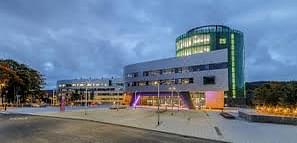

Robert Gordon University


University of Aberdeen


Aberystwyth University
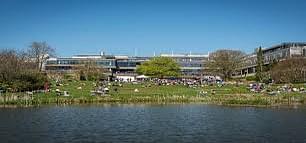

University of Bath


Cranfield University
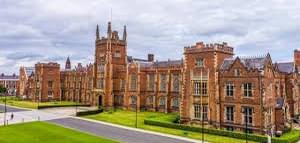

Queen's University Belfast


Ulster University
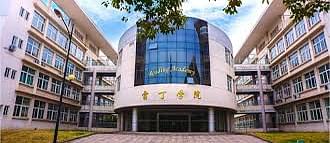

University of Reading
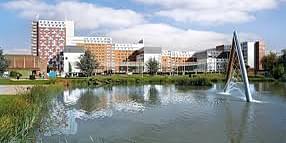
































Comments